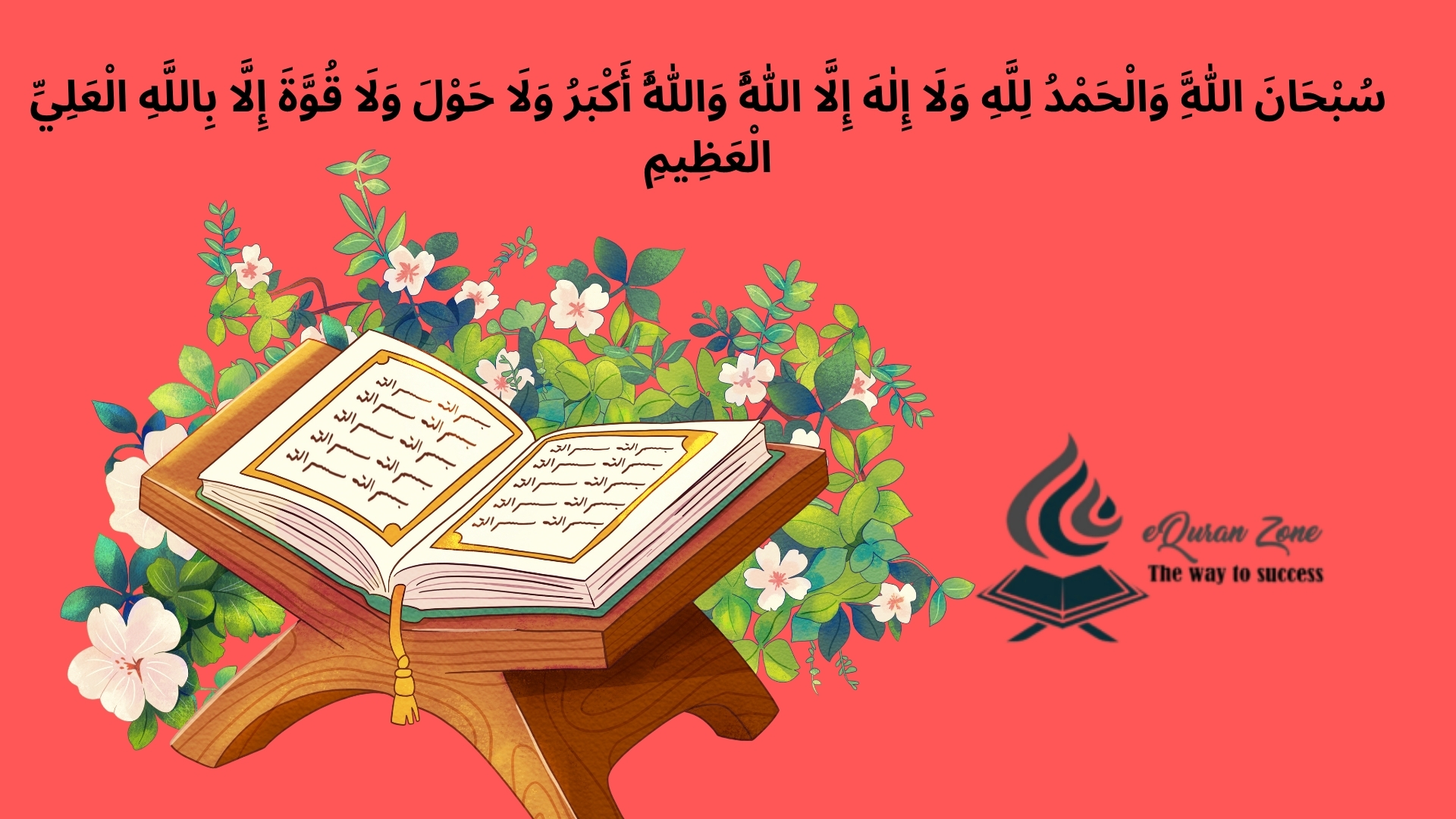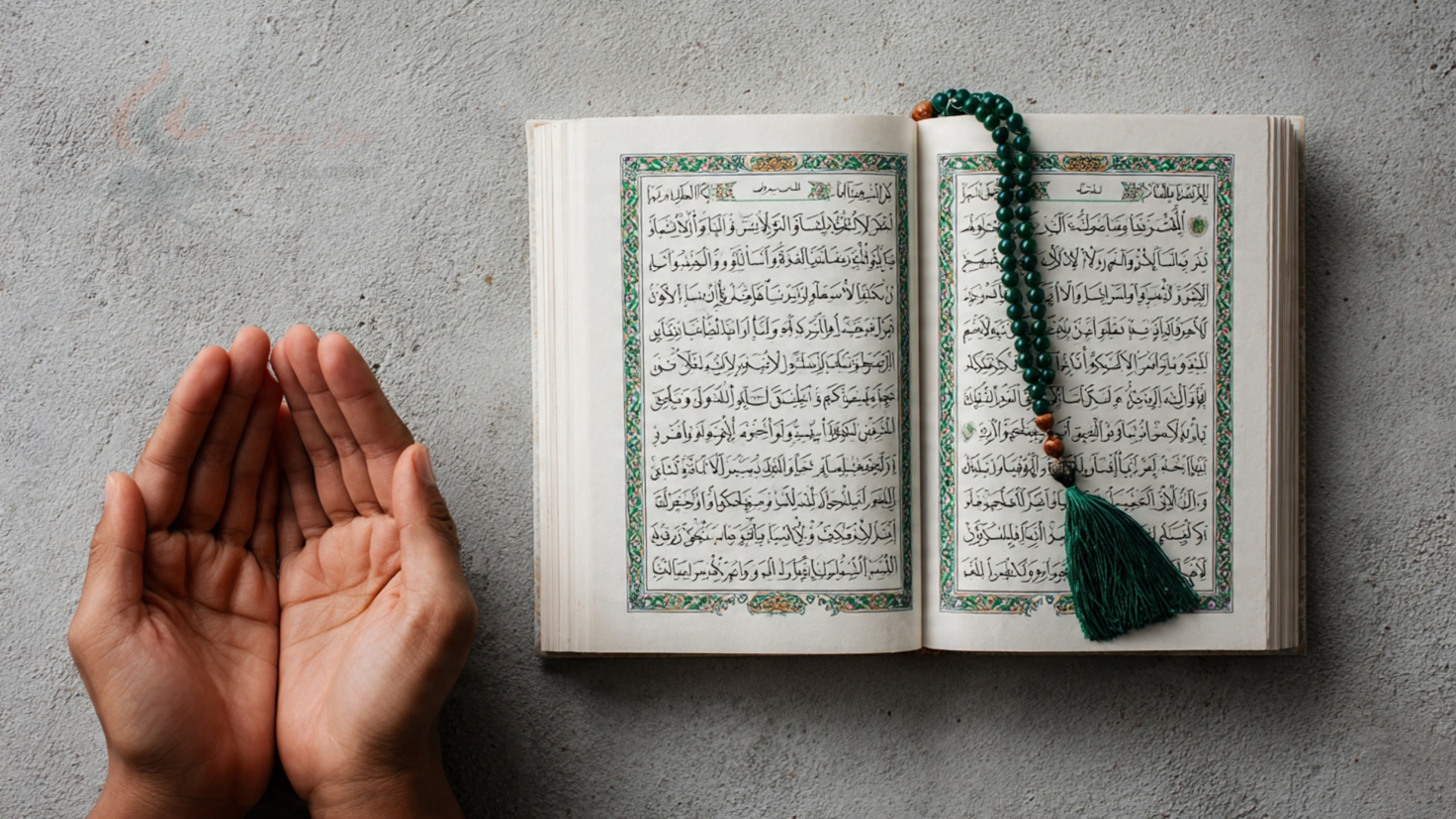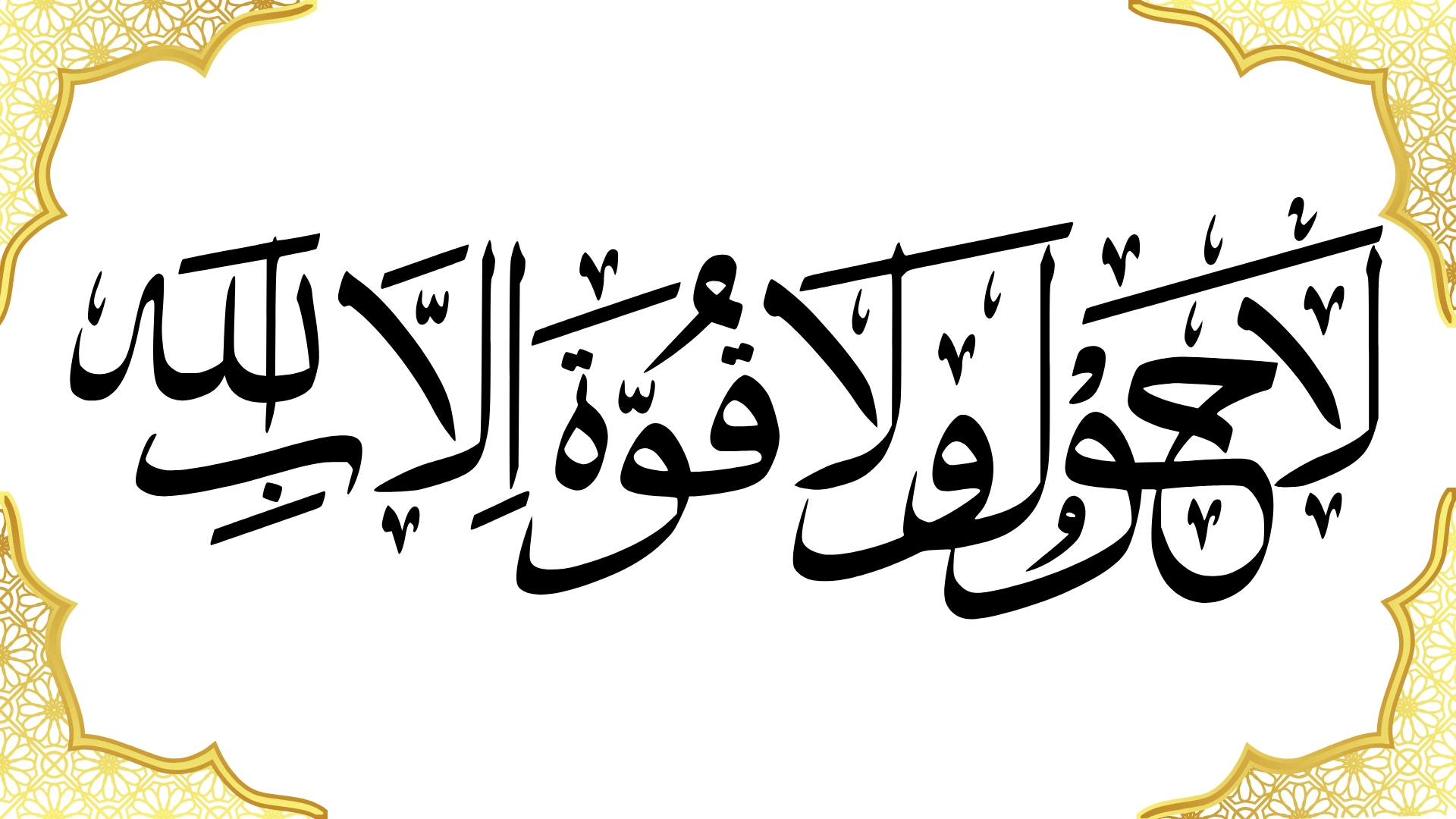The Third Kalima praises Allah’s greatness, glory, and unity. This combines phrases like “Subhanallah” and “Allahu Akbar,” showing faith and gratitude. Muslims recite it often to remember Allah and seek closeness to Him.
Scholars highlight the Third Kalima’s spiritual depth and its impact on belief systems. Research shows its recitation strengthens faith and increases mindfulness of Allah. Studies link its words to historical events involving prophets, emphasizing their universal message. Experts agree it holds a unique place in Islamic worship and daily life.
Imagine words that purify the soul, calm the heart, and connect you to the Creator. This is what the Third Kalima gives. It is more than a recitation—it transforms lives. Each phrase carries immense meaning. Start reciting it to feel faith’s beauty and inner peace like never before.
The Words of the Third Kalima
Arabic:
سُبْحَانَ اللَّهِ وَالْحَمْدُ لِلَّهِ وَلَا إِلٰهَ إِلَّا اللَّهُ وَاللَّهُ أَكْبَرُ وَلَا حَوْلَ وَلَا قُوَّةَ إِلَّا بِاللَّهِ الْعَلِيِّ الْعَظِيمِ
Transliteration:
Subhan-Allahi wal-hamdu-lillahi wa la ilaha illallahu wallahu akbar wa la hawla wa la quwwata illa billahil-‘aliyyil-‘azim.
Translation:
Glory is to Allah, and all praise is for Allah, and there is no deity except Allah, and Allah is the Greatest. There is no power and no strength except with Allah, the Most High, the Most Great.
Urdu Translation
پاک ہے اللہ، اور تمام تعریفیں اللہ ہی کے لیے ہیں، اور اللہ کے سوا کوئی معبود نہیں، اور اللہ سب سے بڑا ہے۔ اور نہیں کوئی طاقت اور نہیں کوئی قوت مگر اللہ کے ساتھ، جو بلند و برتر اور عظیم ہے۔

Meaning of the Kalima
Each component of the Third Kalima communicates a specific message. “Subhanallah” means praising Allah’s perfection. It acknowledges His purity and that He is free from any flaws. “Alhamdulillah” signifies gratitude towards Allah for His countless blessings. “La ilaha illallah” emphasizes the belief in the Oneness of Allah. “Allahu Akbar” declares Allah’s supremacy, acknowledging that He is above all. The last part, “La hawla wa la quwwata illa billah,” reminds Muslims of their reliance on Allah’s strength and power.
This Kalima encapsulates the essence of Islamic monotheism. It highlights the need to glorify Allah and to surrender all reliance to the Creator.
Historical Background
Narrations describe how each element of this Kalima became a part of its structure over time. For example, it is said that the declaration “Subhanallah” was recited by angels when they noticed the brilliance of Allah’s creation. “Alhamdulillah” was added after Prophet Adam (peace be upon him) praised Allah upon creation. “La ilaha illallah” was central to Prophet Noah’s (peace be upon him) message. Words like “Allahu Akbar” reminded Prophet Abraham (peace be upon him) of Allah’s greatness during significant life challenges.
Through these events, this Kalima evolved into the prayer we now know.
Importance of the Third Kalima
The Third Kalima reinforces the unity and power of Allah. Reciting it strengthens faith. It acts as an acknowledgment that worship should only be directed to Allah. This Kalima also instills humility, recognizing that all power belongs to Allah alone.
It is important in developing a strong personal connection with Allah. It reminds believers of their dependence on Him for guidance, provision, and strength during hardship.
Benefits of Reciting the Third Kalima
1. Spiritual Rewards
Every time Muslims say the Third Kalima, they earn countless blessings. It is a form of dhikr (remembrance) that increases good deeds. It provides spiritual light and peace.
2. Forgiveness
By affirming Allah’s perfection and gratitude, reciters seek His forgiveness. The Kalima cleanses the heart and soul, eradicating minor sins.
3. Inner Peace
Reciting this Kalima relieves stress and brings tranquility. It shifts focus from worldly worries to dependence on Allah’s mercy and greatness.
4. Protection
The Third Kalima offers protection from harm by recognizing Allah as the ultimate guardian. The words “La hawla wa la quwwata illa billah” serve as a shield, repelling negativity.
5. Strengthening Faith
Repetition of the Third Kalima helps deepen conviction and strengthen a believer’s connection with Allah.
Recitation Effect
Regular recitation creates mindfulness of Allah. This consistent remembrance shapes a better character and nurtures patience.
Teaching the Third Kalima
Using repetition and visual aids can make it easier. Simple language and examples help kids understand its significance. Making recitation a family tradition also strengthens bonds. Families should recite it together after prayers or before meals, embedding its words into daily routines.
Practices Around the Third Kalima
Muslims incorporate the Third Kalima into the daily acts of worship. Many recite it as part of prayer rituals, emphasizing its role in thanking and glorifying Allah. It is also a part of tasbih (remembrance) after salah. For some, it’s a preferred dhikr before sleep, acknowledging Allah’s mercy.
A Unique Symbol of Unity
Reciting this Kalima promotes unity among Muslims worldwide. Regardless of cultural or linguistic differences, its words connect all who submit to Allah.
The Third Kalima and Islamic Values
The Third Kalima represents gratitude, humility, and submission. It encourages believers to recognize Allah’s role in their lives. It also serves as an affirmation of faith during trials.
Transformative Impact
Reciting the Third Kalima daily transforms the heart. It aligns the soul with patience, trust, and an unwavering focus on Allah. Every word of this Kalima strengthens self-awareness and accountability while nurturing spiritual growth.
Conclusion
At its core, the Third Kalima is a profound invitation to connect with Allah. Beyond memorizing its words, living its meaning is essential. Glorifying Allah, expressing gratitude, and depending entirely on Him creates harmony between belief and action. The Third Kalima isn’t just a declaration; it’s a way of life that reaffirms faith, renews spirituality, and strengthens the believer’s connection to the Creator.




